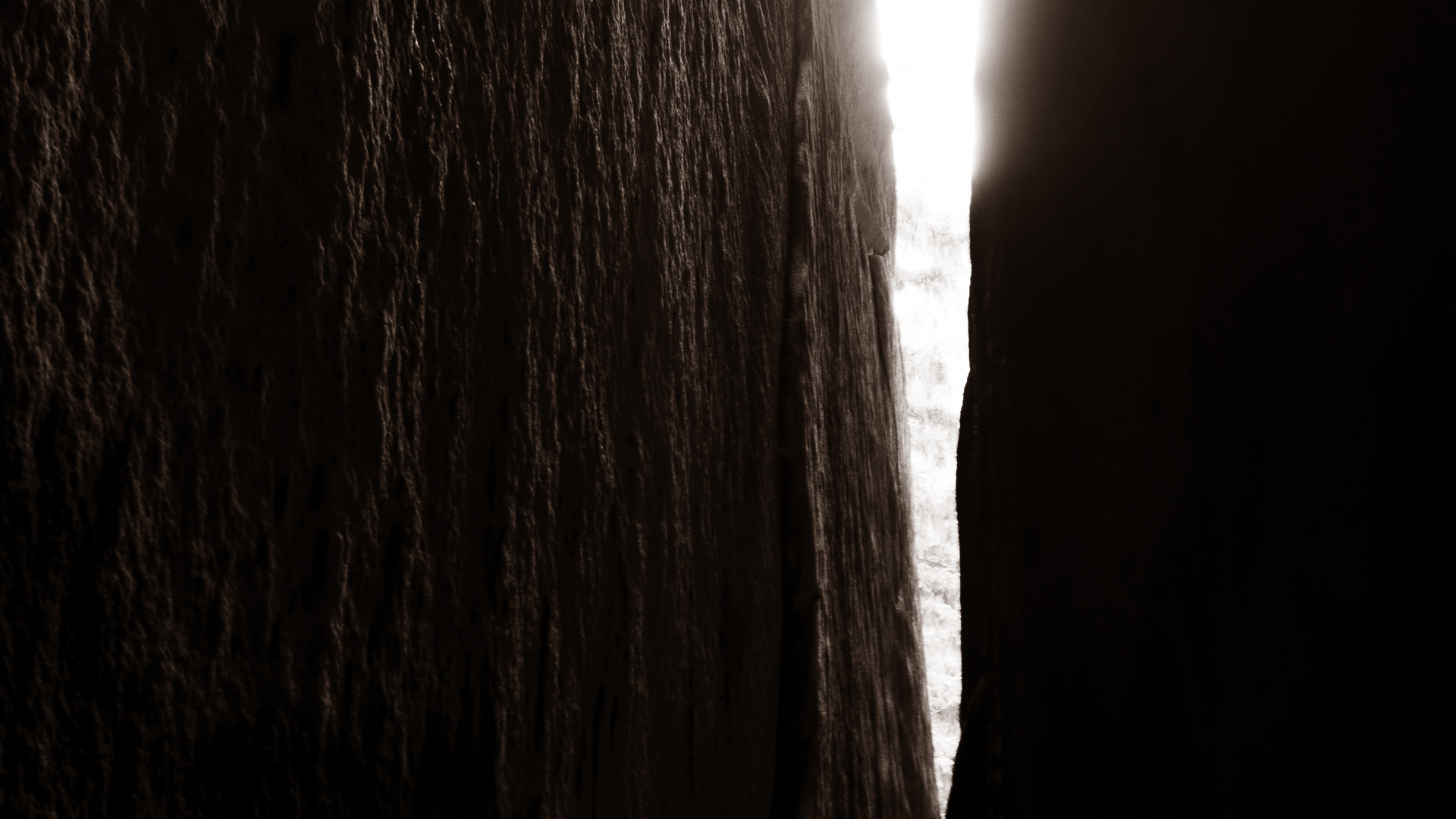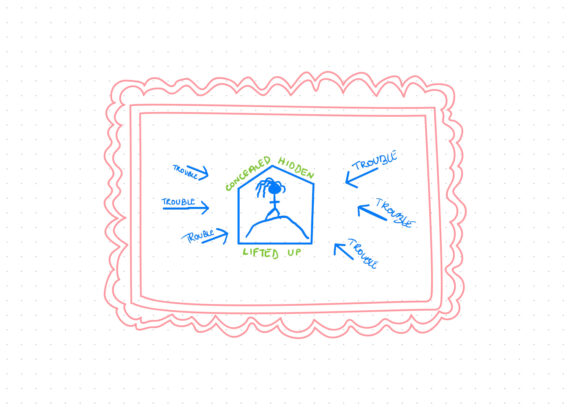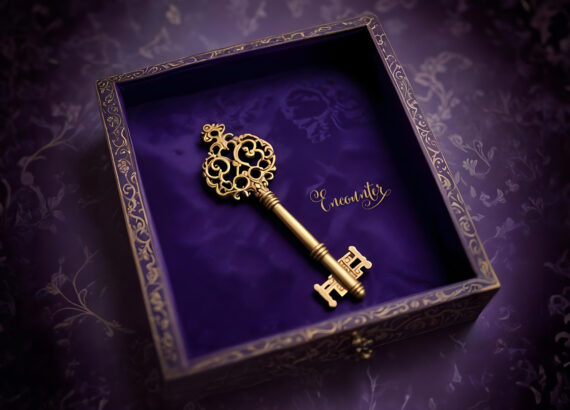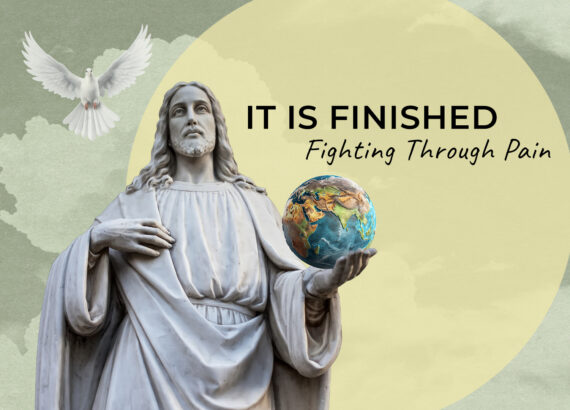Wrestling with the Fragility of Existence
Could a life’s worth be as insignificant and weightless as chaff the wind blows away? Is it possible that the sum total of a happy, comfortable, beautiful life could be worth absolutely nothing at the moment of death?
The recent death of a loved one brought these thoughts rushing into my mind as I once again found myself deeply pondering what this life really is—its fragility, its complexity, its fleetingness.
Have you ever had those moments when the Holy Spirit drops phrases into your mind, and they keep looping over and over? You sense there’s a reason for it—you just know—and you feel compelled to dig deeper into what you’re hearing, trying to uncover what He’s saying? The phrases that kept replaying in my head were: “chaff that the wind blows away,” “let the dead bury their dead,” and “here today, gone tomorrow.”
Psalm One is a good place to begin when trying to understand the value of a life. It talks about the way of the righteous, painting a clear picture of the distinction between the godly and the wicked. It describes how the wicked are not at all like the godly—how they are like chaff the wind blows away.
I write this in all humility, and without judgment. These thoughts tend to come during life-altering events—not from a place of self-righteousness or finger-pointing, but as a reminder to myself of which side I’d want to be on when my own time comes.
Job 18 also gives me a vivid picture of who I don’t want to be. It lays out the end of the wicked in much greater detail. The most striking part is how it all boils down to a godless life. Verse 21 sums it up: “Such is the dwelling of the wicked; this is the place of one who does not know God.”
The Cost of Knowing God
As I began to write all this out—to process what the Holy Spirit was showing me—I started to see the progression more clearly. Luke 9 ends with a short but piercing paragraph about the cost of following Jesus. One man wanted to follow Him but asked to first bury his father. I remember someone pointing out that the father might’ve already died—or maybe he was still alive, and the son was just waiting for that moment before committing. Either way, Jesus responds with a hard truth: “Let the dead bury their own dead.”
To another, Jesus says that anyone who looks back after putting their hand to the plow isn’t fit for the kingdom of God.
These radical words cut deep into the core of who we are. We feel such a strong pull to stay loyal to our family—our parents, our siblings, our grandparents, our lifelong friends. And yet, Jesus is calling us to prioritize Him above everything else. So when He says it’ll cost us, He’s not exaggerating. It is a sacrifice. It goes against every part of us that’s tightly bound to this world, this moment, this life. But that’s what it means to be godly.

From Death to Life
It honestly breaks my heart to think that—even though Jesus died for everyone—so many still face death as the final full stop to life. We comfort ourselves by imagining, or hoping, that the person who passed came to know Jesus at the last minute, or maybe secretly knew Him all along. It’s a soft, quiet kind of hope we offer in kindness—but the truth is, without resurrection life, people live and die entirely on their own.
If the old life doesn’t die, then the new life can’t be born. And without that transformation, a person is utterly and completely alone in this life—and in death.
So here we are, staring at two sides with a chasm between them. On one side: everything that is visible, tangible, and temporary—like chaff the wind blows away. On the other: everything unseen, eternal, rooted in the kind of life that only emerges through death.
Honestly, thinking about these things can be heavy—mentally, emotionally, spiritually. But don’t ignore that sinking feeling you get in the pit of your stomach when these thoughts creep in. I wouldn’t wish for anyone’s last moments to be a realization that they’ve been on the wrong side all along.
2 Corinthians chapter 4 talks about this quite clearly when it says that the sacrifice and the cost of knowing God includes all kinds of afflictions—being crushed, being perplexed, being driven to despair, being persecuted, being struck down—but not forsaken and not destroyed. And that is the cost of following Jesus Christ.
We die a sort of death every moment and every day when we live the Christian life, because death no longer has a hold on us. It’s no longer that final door that we walk through with nothingness on the other side.
Instead, we know that we will be raised to life again with Jesus who has gone before us, and this new life will be in eternal glory—something that is beyond comparison. And this encourages us to not lose heart, because our outer self, which can be compared to chaff, will be gone one day, but what’s more than meets the eye is everlasting life. That is what I wish for every person I’ve ever known, and for every person I will ever meet.
Share this with someone who might need a reminder of the eternal.






Angella
As Easter draws near, the topic of death is very present. The life Jesus gave for us and oh His resurrection. Thanks so much, Shalomie for the reminder of our frailty, but also of the beautiful eternal life after death made available through Christ Jesus for all who believe in Him✨.
Angella